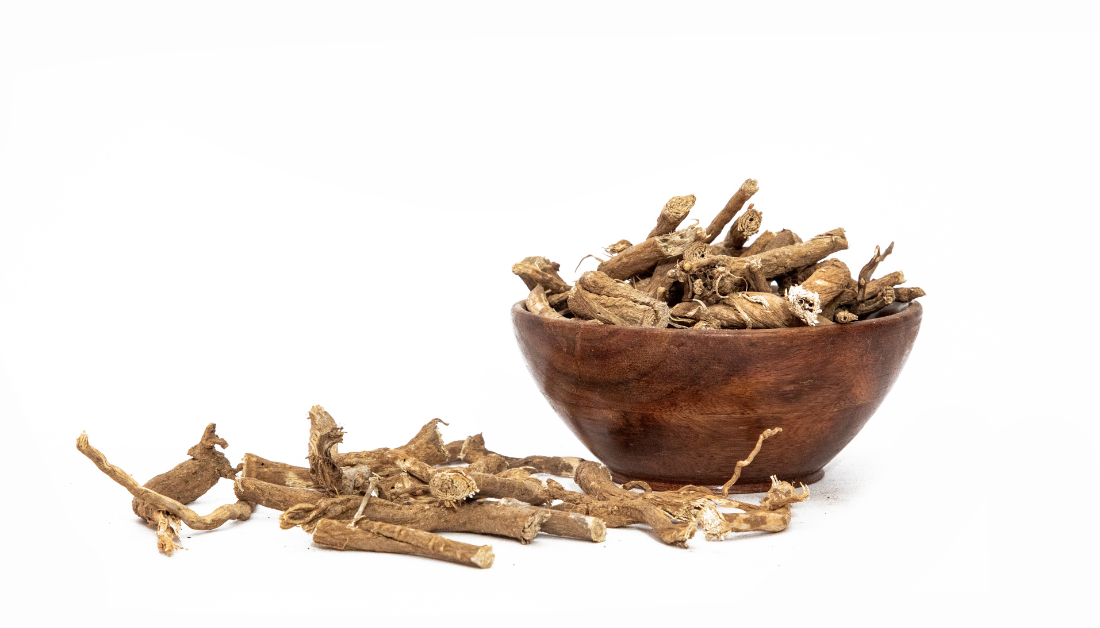

Researchers compiled and evaluated available data investigating the cortisol-associated action of Withania somnifera in a recent systematic review published in the journal Nutrients. The plant’s therapeutic properties, colloquially known as ‘Ashwagandha’ in India, have been presumed for hundreds, if not thousands, of years. A systematic assessment of the literature, however, reveals just nine studies on the anti-stress characteristics of plant extracts (mostly anti-cortisol), none of which were long-term. Nonetheless, this study shows that W. somnifera extracts used under medical supervision have a suppressive effect on cortisol hormone secretions for short periods of time, presenting the plant as a natural, cost-effective, and side-effect-free alternative to conventional chemical clinical interventions.
Stress and the need for safe interventions
Stress and its accompanying mental health comorbidities, such as anxiety and depression, are a growing global concern. According to research, about 40% of humans are suffering from the impacts of extended stress, with 31% and 33% developing anxiety or depression, respectively. The continuing coronavirus disease 2019 (COVID-19) has worsened an already concerning trend, with the World Health Organization forecasting a 25% increase in worldwide baseline stress levels as a result of the pandemic.
Human stress is typically clinically assessed by assessing the cortisol hormone level in a person’s circulating blood plasma. Medical research has shown that an increase or reduction in an individual’s cortisol levels can serve as a good proxy for short-term stress, making it the preferred test for monitoring patients undergoing anti-stress medication therapy.
Tranquilizers, beta-blockers, and selective serotonin reuptake inhibitors (SSRIs) are commonly used to alleviate stress, although some are exceedingly expensive and out of reach for low-income individuals. A growing body of literature shows that, while these drugs are useful in treating stress and mental illnesses, they come with a substantial risk of adverse effects and reliance if used for an extended period of time. When combined with the increasing global popularity of self-administered’ natural herbal medications, there is an urgent need for the discovery of novel naturally-derived treatments that can be recommended to the public after rigorous clinical testing.
Withania somnifera (WS) is a Solanaceae family medicinal plant. This plant is native to India, the Middle East, and portions of Africa and is known as ‘Ashwagandha’ in the ancient Indian language of Sanskrit, ‘Indian ginseng’ in Ayurveda and traditional Chinese medicine, and ‘Winter cherry’ in the West. Traditional medicine considers WS to be a medicinal plant, with records of its use in India dating back 2500 years. Extracts from the plant have been used to treat a variety of unrelated disorders such as arthritis, sleeplessness, tuberculosis (TB), asthma, male infertility, and anxiety.
About the Study
In this study, researchers conducted a comprehensive review of all current scientific evidence on the relationships between WS treatments and stress effects. They gathered publications from five scientific archives, which were then vetted and analyzed in accordance with the Preferred Reporting Items for Systematic Reviews and Meta-Analyses (PRISMA) 2020 standards. The methodologies of the review were entered into the PROSPERO database of prospectively recorded systematic reviews in health and social care.
From the start of the database until the 16th of May 2023, data was collected by searching PubMed, EMBASE, Scopus, Google Scholar, and CENTRAL. The title and abstract screening included 4788 articles, however only nine of them passed full-text screening and were included in the review. To avoid reviewer bias, data extraction from these nine papers was done manually by a single reviewer.
The first eight included studies were short-term, double-blind investigations that used similar methodology, whereas the ninth was a controlled trial with a crossover research design. Participants in all research were healthy at the start of the study, and the result of interest was changes in cortisol levels (saliva or blood plasma) before and after WS extract treatment.
Study News
Consumption of WS extracts for 30 to 112 days resulted in quantifiable and significant reductions in cortisol levels in research subjects, corroborating prior findings. However, the long-term consequences of WS extracts are unknown, as is the possible domino effect of lower cortisol and adrenal hormone outputs. None of the studies examined looked at the mechanisms underlying WS extracts’ ability to decrease corticosteroids.
Interestingly, only one of the reviewed papers mentioned that the ancient usage of WS extracts in Ayurveda entailed a complex combination of both Ashwagandha and other medicinal herbs, in contrast to the current ‘only WS consumption’ paradigm of self-administration. Furthermore, the WS extract concentrations employed in the included studies were orders of magnitude (grams) larger than those seen in most over-the-counter self-help medications (milligrams at most), encouraging researchers to look for optimal intake levels.
For more information: Della Porta, M., Maier, J. A., & Cazzola, R. (2022). Effects of Withania somnifera on Cortisol Levels in Stressed Human Subjects: A Systematic Review. Nutrients, 15(24), 5015
more recommended stories
 Pediatric Crohn’s Disease Microbial Signature Identified
Pediatric Crohn’s Disease Microbial Signature IdentifiedKey Points at a Glance NYU.
 Nanovaccine Design Boosts Immune Attack on HPV Tumors
Nanovaccine Design Boosts Immune Attack on HPV TumorsKey Highlights Reconfiguring peptide orientation significantly.
 High-Fat Diets Cause Damage to Metabolic Health
High-Fat Diets Cause Damage to Metabolic HealthKey Points Takeaways High-fat and ketogenic.
 Acute Ischemic Stroke: New Evidence for Neuroprotection
Acute Ischemic Stroke: New Evidence for NeuroprotectionKey Highlights A Phase III clinical.
 Statins Rarely Cause Side Effects, Large Trials Show
Statins Rarely Cause Side Effects, Large Trials ShowKey Points at a Glance Large.
 Can Too Many Antioxidants Harm Future Offspring?
Can Too Many Antioxidants Harm Future Offspring?Key Takeaways High-dose antioxidant supplementation in.
 Anxiety Reduction and Emotional Support on Social Media
Anxiety Reduction and Emotional Support on Social MediaKey Summary Anxiety commonly begins in.
 Liquid Biopsy Measures Epigenetic Instability in Cancer
Liquid Biopsy Measures Epigenetic Instability in CancerKey Takeaways Johns Hopkins researchers developed.
 Human Antibody Drug Response Prediction Gets an Upgrade
Human Antibody Drug Response Prediction Gets an UpgradeKey Takeaways A new humanized antibody.
 Pancreatic Cancer Research: Triple-Drug Therapy Success
Pancreatic Cancer Research: Triple-Drug Therapy SuccessKey Summary Spanish researchers report complete.

Leave a Comment